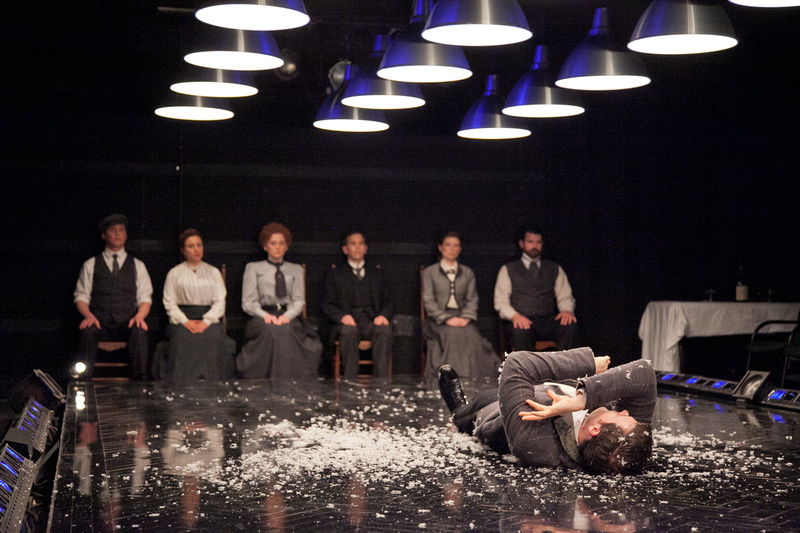Review: Protoype Festival – Paul’s Case
The Prototype Festival, a multi-week festival dedicated to showcasing new works of opera for reduced forces in smaller, more flexible spaces has garnered a lot of press in recent months. Last year’s inaugural festival has made it into several top 10 lists of 2013 and producer/ cheerleader/ impresario Beth Morrison was recently profiled in the New York Times (apparently her striking neo-goth rockabilly style confounded the photo editors, believing her to be too hot for the classical world).
This year’s festival largely followed the successful model of last year’s: a world premiere, some productions brought in from around the country (and world), some works in progress, and a couple of cross genre cabaret acts. Over the past two weeks I was able to see almost all of the works presented in the festival (I had already seen Visitations at its premiere at Stanford last year, and the one night only co-presentation of Elizaveta at Joe’s Pub was sold out). I’ll post brief reviews of the pieces in the days to come.
Gregory Spears’s Requiem is amongst my favorite pieces composed in the past 5 years, so I was very excited to hear the New York premier of Paul’s Case, his operatic adaptation of Willa Cather’s morally ambiguous tale of a young man who bristles against the values, expectations, and responsibilities of industrial society. Though it predates the Requiem, it shares the luxurious tonal sonorities and ornamented vocal lines of the later work. With the exception of the opening scene, the libretto is largely expository, the characters saying what they are doing and thinking and feeling, as if we are watching an omniscient narrator speaking through their characters. The repetition of lines and phrases plays an important role, as several characters are often singing their text simultaneously, creating shimmering vocal harmonies and requiring the listener to tease out the text from the mass of sound.
The voices in this production were uniformly gorgeous and particularly well suited to the material. I don’t know that I’ve ever heard a cast of voices so strong in a theater so small. Jonathan Blalock‘s Paul would spin delicately earnest and precise tenor lines though a half smile/half smirk that made you half think he was laughing at you in front of your back. As Paul’s business minded father, Keith Phares used his powerful baritone to assert a compelling authority that only the hardiest of fools would ignore, yet could color his phrases with shades of loss, evoking genuine sympathy when betrayed by his son. In a smaller ensemble role, Melissa Wimbish was a standout for her brilliant soprano, as well as for her tawny mane tightly bound in an up-do that, at times, seemed poised to explode. (It is at this point that I feel compelled to mention that the members of this cast, in addition to being fantastic actors and singers, were all REALLY good looking! Certainly the kind of cast that makes one thankful for small, intimate theaters. But… I digress…)
The story is a fascinating one, and I very much appreciated the nuanced handling of the moral ambiguity of the tale. Yet as the piece progressed, I felt an emotional distance, an inability to comprehend or sympathize with the main character’s choices or ultimate plight. This may be inherent to the source material and its rubbing against my own belief in one’s responsibility to those around you, but it seems to have been exacerbated by the expository distance and static, tableau-like nature of the scenes. However, in the final moments, though a lovely convergence of stagecraft, plotting, and a no-net performance of breathtaking vocal acrobatics, I finally felt all the emotions that had been missing rush in at once, sadness, loss, and elation… transformed by the relentless and unapologetic beauty of the past hour of music, and judging from the 30 seconds of hushed silence that separated the fade to black and the enthusiastic ovations, I was not alone.
